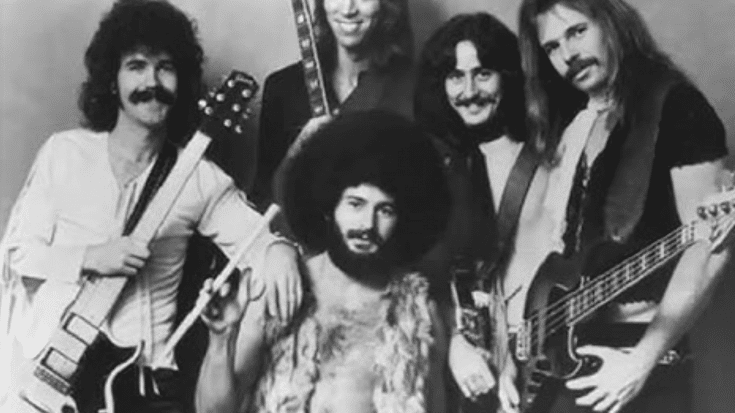9 Doobie Brothers Tracks That Fans Found ‘Cringeworthy’

via The Doobie Brothers / YouTube
The Doobie Brothers built their reputation on catchy hooks and polished rock harmonies. However, some tracks have sparked debate among listeners who find them awkward or overly sentimental. Below are nine songs that many fans consider “cringeworthy,” along with reasons why they earned that reputation.
1. “Real Love” (1980)
“Real Love,” released in 1980 on the album One Step Closer, marked a shift toward a softer pop-rock style. Some fans felt the glossy production clashed with the group’s earlier, more organic sound. The track’s smooth vocals and polished arrangement appealed to radio listeners, yet disappointed those seeking a rock-oriented approach.
Although it climbed the charts, “Real Love” drew criticism for its mellow tone. Listeners who enjoyed the band’s earlier material, such as “China Grove” or “Long Train Runnin’,” felt this single strayed too far from their trademark energy. Despite its success, many longtime fans still regard “Real Love” as too soft.
2. “Need a Little Taste of Love” (1980)
Also appearing on One Step Closer, “Need a Little Taste of Love” presented a blend of pop hooks and light rock elements. Its straightforward lyrics and gentle melody led some listeners to view it as lacking the band’s usual spark. The track’s repetitive chorus further fueled complaints about its simplistic style.
Critics argued that this track reflected a period when the band was experimenting with a commercial approach, hoping to appeal to a broader audience. Fans who preferred the soulful rock elements from albums like Toulouse Street or The Captain and Me found this tune less exciting. Many still skip it today.
3. “One Step Closer” (1980)
The title track of One Step Closer combined polished production with a laid-back groove. Some fans felt the band’s signature guitar work was overshadowed by pop-influenced backing vocals. The result was a tune that critics labeled “pleasant,” but longtime listeners often deemed forgettable, lacking the distinct character of earlier songs.
While the band’s vocal harmonies remained strong, the absence of a driving rhythm disappointed those who enjoyed the rock side of The Doobie Brothers. This track’s softer approach prompted debates about the group’s direction. Over time, it has become one of the least-celebrated songs in their extensive catalog.
4. “Here to Love You” (1978)
Featured on the album Minute by Minute, “Here to Love You” highlights the smooth, R&B-tinged vocals of Michael McDonald. Although the track showcases the band’s ability to blend rock with soul, some fans disliked its gentle tempo and polished production. They felt it lacked the raw energy of their earlier hits.
Supporters of the group’s rock roots criticized “Here to Love You” for leaning too heavily on soft textures. This shift toward a polished sound attracted new audiences but alienated some original followers. Over the years, the track has been overlooked by listeners who prefer the band’s more upbeat and guitar-driven material.
5. “Don’t Stop to Watch the Wheels” (1979)
“Don’t Stop to Watch the Wheels,” from Minute by Minute, introduced a catchy chorus that some listeners found repetitive. The track’s production featured a radio-friendly arrangement, emphasizing keyboard elements over guitar. Fans who enjoyed the group’s earlier rock edge considered it a bland attempt at mainstream success.
Critics noted that the band seemed to be prioritizing chart performance rather than showcasing their typical musicianship. The repetitive hook and lightweight lyrics added to the perception that “Don’t Stop to Watch the Wheels” lacked depth. Despite its initial airplay, many longtime fans now skip this track in favor of stronger cuts.
6. “Keep This Train A-Rollin’” (1991)
Recorded during a phase when the band was reuniting, “Keep This Train A-Rollin’” appeared on Brotherhood. The track attempted to recapture their early rock style, yet some listeners felt it lacked the spark of their classic period. The arrangement’s repetitive structure made it seem like a forced effort to sound relevant.
Although it hinted at a return to their roots, the tune’s predictable chord progressions and subdued vocal delivery disappointed fans seeking the energy of earlier hits. Critics saw it as a reminder that the band’s style had shifted. As a result, the song remains one of the lesser-known tracks from that era.
7. “Excited” (1989)
“Excited,” from Cycles, marked the band’s late-’80s comeback attempt. The production leaned on synth layers and slick backing vocals. While it aimed to fit the pop-rock trends of the time, many longtime fans felt the track sounded generic. The polished tone overshadowed the group’s typical rock foundation.
Listeners accustomed to the band’s classic rock approach viewed “Excited” as an awkward attempt at modernizing. Critics commented that the band’s identity was lost in the process. Though Cycles achieved some commercial success, “Excited” became a prime example of a track that never fully connected with die-hard followers.
8. “No Stoppin’ Us Now” (2010)
Appearing on World Gone Crazy, “No Stoppin’ Us Now” attempted to blend the band’s old rock elements with contemporary production. The chorus featured a repetitive hook that some fans found annoying. Although the album brought them back into the spotlight, this particular track failed to resonate with longtime admirers.
Critics pointed to the song’s lack of depth and overreliance on a catchy refrain. The track’s pop-like structure felt at odds with the band’s established identity. Despite some praise for the group’s effort to stay current, “No Stoppin’ Us Now” remains an overlooked and often skipped part of their discography.
9. “Ordinary Man” (1982)
“Ordinary Man,” included on the 1982 album Farewell Tour, was recorded during a period of tension within the band. Its mellow tempo and simplistic lyrics left many fans wanting more of the group’s signature rock edge. Critics described it as a filler track that lacked the creativity of their classic tunes.
Some listeners speculated that internal pressures caused the band to deliver songs that did not reflect their best work. “Ordinary Man” came across as a halfhearted attempt to maintain the band’s presence on the charts. Over time, it has faded into obscurity, rarely mentioned among The Doobie Brothers’ memorable hits.












